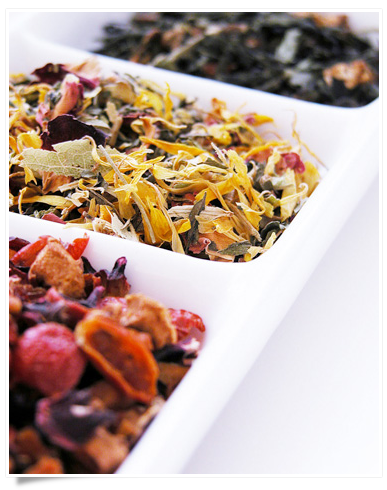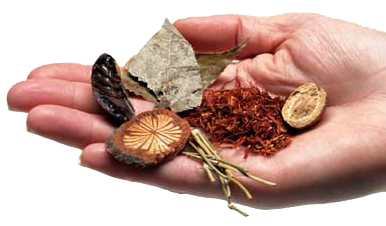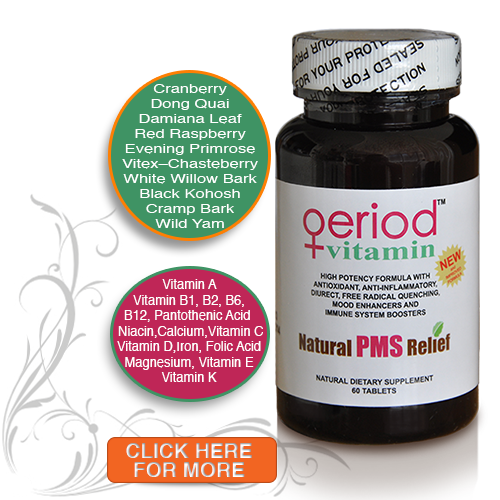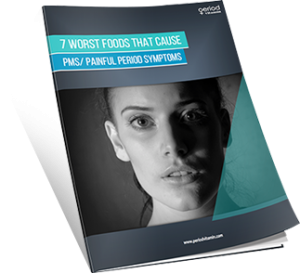 Many women chose to treat their PMS with herbal remedies as opposed to medical, vitamins, and lifestyle choices. When it comes to herbal remedies, there are a multitude of choices and very little scientific evidence that any of them work. On the other hand there is plenty of antidotal evidence that most if not all of these remedies work.
Many women chose to treat their PMS with herbal remedies as opposed to medical, vitamins, and lifestyle choices. When it comes to herbal remedies, there are a multitude of choices and very little scientific evidence that any of them work. On the other hand there is plenty of antidotal evidence that most if not all of these remedies work.
So what are these remedies aimed at? What are the symptoms of PMS?
There are a variety of different symptoms and not all women will experience them all and some women won’t experience any of them. PMS or pre-menstrual syndrome consists of all of these symptoms: water retention, mood swings, depression, cramps, bloating , irritability, anxiety, headaches, back ache, acne, sore breasts, nausea and vomiting, weight gain, and insomnia.
The herbal remedies that follow will be effective for only specific symptoms, however one herb, Don quai, is effective for almost all and Chaste Tree Berry and Chamomile are effective for most.
What herbal supplements help with PMS and what is the best herbal remedy for pms?
Herbal remedies and herbal products come in a wide variety of formats. There are supplements that are made into tea; there are tablets, herbal vitamins, Chinese herbs and diuretics. Studies done on herbal medicine have either been inconclusive or have not found that most herbs actually work as PMS treatment, but some of them do.
Chaste Tree Berry has been cited by women as being effective for headaches, mood swings and acne, along with pms sore breasts. “A study published in the British Medical Journal involving 178 women with PMS found that chaste tree berry significantly reduced PMS symptoms over three menstrual cycles. Women taking chaste tree had significant improvements in irritability, depression, headaches, and breast tenderness.” (altmedicine.about.com)
“Two surveys of its efficacy were done on 1,542 women who took a liquid extract (42 drops daily) for spans up to 16 years. The patients’ doctors rated its effectiveness as very good, good or satisfactory in 92% of cases. Further clinical confirmation of its effectiveness for PMS can be found in the work of Hardy6 and Gaster7.” (depression.about.com)
“A few studies have shown that women treated with chaste berry extract reported less breast pain, bolstering the theory that chaste berry suppresses the release of prolactin, a hormone involved in breast milk production that’s been linked to breast pain. Another small study showed that chaste berry, combined with St. Johns’ wort, lowered levels of depression, anxiety, and cravings.” (women.webmd.com)
We have already looked at the efficacy of Chaste Tree Berry so let’s look at a few others.
What Herbal Remedies Can I Take For PMS Symptoms
- Don quai – is considered by many women to be the best herbal relief for pms. It is usually used for headaches, bloat and water retention, cramping, mood swings and to help with pms back pain. Don quai is an ancient Chinese remedy and there are very few studies regarding its efficacy for PMS and those that do exist are inconclusive. Yet the anecdotal evidence from women is overwhelming and in favor of its use for PMS.
- Chamomile – especially the chamomile tea recipe is also effective for multiple pms symptoms. The symptoms that are affected include bloating during period, water retention, cramps and mood swings. The only scientific studies on this herbal tea are done with animals and not people. Therefore it is considered that there is no documented scientific evidence to support its use. However women have used it for generations and the lack of scientific evidence is not likely to have an impact on it use.
- Evening Primrose Oil (EPO) – is used by women for headaches and mood swings and sore breasts before or during period. It is a source of Omega 6 fatty acids. “In several double blind studies, EPO was found to be beneficial, whereas in other studies it was no more effective than placebo.” (depression.about.com). “Evening primrose oil (Oenothera biennis), which contains gamma-linolenic acid (GLA), is often mentioned as an antidote to breast pain, but there’s insufficient evidence that it works.” (women.webmd.com). In order to make EPO most effective it must be used for several months before it really begins to work. It also seems to be more effective for women who have fibrous breasts.
- Dandelion – the root not the flower – is also used for several pms symptoms including bloat, water retention, cramping and mood swings. It can be made into a tincture, a tea or taken as tablets. It works well for water retentionand bloat because it is a natural diuretic. It is also known to remedy digestive disorders. It should be taken as a tea a couple times a day. Even though it is a natural diuretic, it also has natural potassium so you don’t have to worry about depleting your potassium.
- Black Cohosh – Black Cohosh is used to treat cramps and mood swings.

- Peppermint/Mint Tea – used to treat fluid retention, bloat and cramps.
- Ginger – has been used for a variety of illnesses for many centuries. It is very effective for intestinal upsets whether during pms or otherwise. In pms it is also used for headaches, water retention, bloat and cramps.
- Willow Bark – Flax Seed Oil -Feverfew -Butterbark –are all used primarily for pms migraines and headaches.
- Lemon balm – Fennel – are both used for bloat and water retention.
- Starflower Oil – Juniper – mood swings are the primary pms use for these herbs.
- Vitex (Vitex agnus-castus) – is very effective for irritability, mood swings, and depression. “There are a number of controlled clinical studies supporting the use of this for premenstrual problems.” (Dittmar et al, 1992; Feldmann et al, 1995).
- Reishi (Ganoderma lucidum) – Seems to affect sleep cycles and mechanisms as it is effective for fatigue, insomnia and mood swings.
- Valerian (Valeriana officinalis) – helps with relieving cramps by relaxing the large smooth muscle. It is particularly effective when combined with cramp bark.
- Cramp Bark – is also effective against cramps by relieving spasms in the uterus and muscle tension. It is particularly effective when combined with valerian.
- St. John’s Wort – is used for depression regardless of the cause and seems to be very effective against pms depression.
- Starflower Oil – Also helps with mood swings.
PMS Herbal Supplements All In One
On the whole herbal remedies seem to be a mixed bag for proven effectiveness against the symptoms of PMS. All the studies that have been done, and there are not that many, seem to be inconclusive for most of these herbal remedies. There are a few however that are validated by studies. Herbal remedies are not regulated by the Food and Drug Administration so it is possible and even likely that doses are not the same from one supplement to another.
 The real issue for both proven effectiveness and regulation is the lack of any large scale studies on any of these herbal remedies that the “experts” would then accept the results of. With or without those studies and that expert acceptance, there have been enough anecdotal evidence and a history of thousands of years of usage for women to put their faith in.
The real issue for both proven effectiveness and regulation is the lack of any large scale studies on any of these herbal remedies that the “experts” would then accept the results of. With or without those studies and that expert acceptance, there have been enough anecdotal evidence and a history of thousands of years of usage for women to put their faith in.
For centuries women themselves have studied, advanced and proven to each other the efficacy of these herbal remedies.
However, most practitioners will not rely only on herbs alone to solve pms symptoms and discomforts. They will use herbal remedies in conjunction with vitamins, mineral supplements, dietary changes and lifestyle changes including procedures like massage and acupuncture. Almost every practitioner will recommend exercise in conjunction with whatever else is advocated. Because most practitioners believe that pms is a complex syndrome they also believe that it calls for a complex and multifaceted solution.
Today’s Naturopathic Medicine doctors are well versed in the use of herbal remedies for a variety of maladies and PMS is one of those. More and more medical doctors and D.O.s are also using herbal remedies. Given this it seems that in the next ten to twenty years we will see studies with herbal remedies and pms. We are confident that when those larger scale studies are completed, there will be documented evidence of the efficacy and effectiveness of herbal remedies.
Until then we will have to be satisfied with the “wives tales” history to go on and word of mouth. Part of this is because herbal remedies are “natural” ingredients that cannot be patented. If a substance cannot be patented, the pharmaceutical companies are not going to sponsor the research and studies needed to meet FDA regulations.
So these herbal remedies which really do work, will more than likely remain off the grid and available in health food stores, coops and natural food stores. The good news for women suffering from PMS for whom these herbal remedies might be a god-send, is the internet. The information about these remedies is available online and you can buy them online as well. So find the ones that work for you and don’t worry about the scientific studies.


